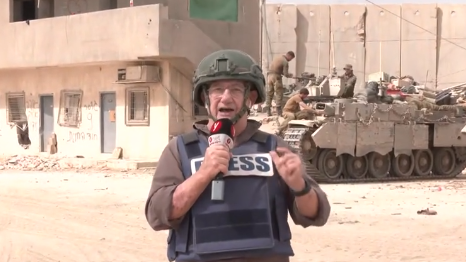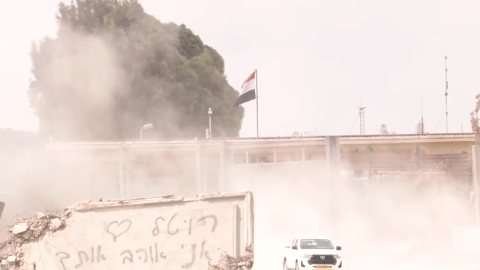Getting your Trinity Audio player ready...
On the eve of the ground offensive into Gaza, Israeli leaders had doubts. Prime Minister Benjamin Netanyahu spoke of the possibility of thousands of casualties after some military officials warned that his announced objectives in the war may not be achieved.
However, the top brass remained firm: "We can do this." Now, nearly a year into the operation, IDF forces have been maneuvering through the densely populated Gaza Strip, enduring months of particularly intense fighting. So far, 347 soldiers have been killed in these battles.
Ron Ben-Yishai
(Video: Yaron Sharon, Lior Sharon)
Recently, the IDF launched a renewed offensive in northern Gaza, as the war shifted to combating an "invisible enemy." While the initial days of the maneuver saw dozens of Hamas fighters openly resisting, now, instead of seeking confrontation, Hamas terrorists are mostly fleeing and hiding in tunnels. To neutralize Hamas' capabilities, the IDF has had to repeatedly engage in these operations.
Hamas, as a military force, has largely been dismantled, aside from one or two battalions still present in central Gaza. Movement here, along the Philadelphi Corridor, proceeds without immediate threat, though terrorists still operate in Gaza. A large portion of the population remains affiliated with Hamas, and further operations will likely be necessary—though less intense over time—to ensure Hamas no longer poses a threat to southern Israel or the country as a whole.
The Gaza side of the Rafah crossing has effectively become a forward IDF base, supporting most of the army’s operations in the Rafah area. It is surrounded by the ruins of parts of Rafah and the crossing itself, with intelligence-driven combat continuing in the area.
The military's mission is to disrupt Hamas’ attempts to regain control in northern Gaza and to pressure Yahya Sinwar – wherever he may be – to agree to a hostage deal on Israel’s terms. However, even a year from now, the IDF will likely still have to conduct raids into Gaza. Currently, three IDF divisions are operating inside the Strip: one in the Netzarim corridor, one in the north, and another along the Philadelphi Route. In a year's time, I expect these forces will no longer be stationed here permanently, or they will be in smaller enclaves.
The IDF currently has momentum and is successful in intelligence gathering, air strikes, and ground maneuvers, including operations in southern Lebanon. The ability to fight with force in two arenas simultaneously is remarkable and offers reason for optimism. However, as the saying goes, "War is the realm of uncertainty." There is an enemy on the other side, and things could still get complicated. My assessment is that we are heading in a positive direction, and the war could end in a few months.
Having covered many wars both in Israel and abroad, this conflict is different in several key ways, and I’ll highlight three. First, it is being fought under the heavy cloud of hostages taken by Hamas. I’d go so far as to say that this war would have ended much sooner if Hamas hadn’t succeeded in kidnapping hostages on October 7.
The humanitarian need to sustain Gaza’s civilian population hampers military efforts, but the hostages are the primary constraint. The IDF, like no other army, is fighting while hundreds of civilians are held captive by the enemy. As a nation that cherishes life, we cannot tolerate the situation of our citizens being held in such dire conditions, especially in Hamas tunnels. This influences not just the overall strategic management of the war, but also operational and tactical decisions. Soldiers must think twice before shooting, knowing a hostage could be in the line of fire.
Second, this war is being fought against an elusive enemy—one that avoids confrontation, hides, but uses IEDs and tries to entrench itself within the civilian population.
Third, the motivation among the soldiers is extraordinary. I was a child during the War of Independence when we were evacuated from Jerusalem, and I’ve been told that the level of motivation was similar back then, when Israel faced the threat of annihilation. This motivation stems from Israeli society at large, the home front, and the soldiers and military personnel. It’s the drive to preserve Israel as a Jewish, sovereign, and democratic state, and that determination is what makes all the difference.
Get the Ynetnews app on your smartphone:







